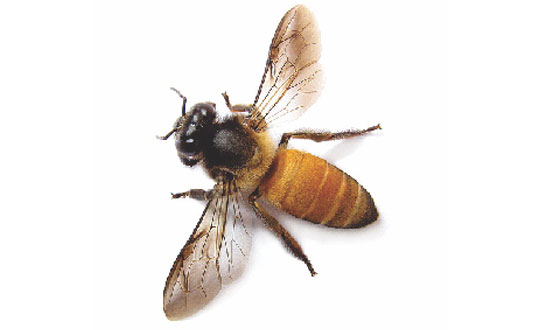What do you do when you spot a bee or an insect inside your house?
Roll up a news paper and squash it?
Well that might not be such a good idea, are you wondering why?
Did you know that bees, butterflies and small animals pollinate almost 90% of all the food and fruits on earth? Can you imagine that you have food on your plate thanks to that little creepy crawly insect?
Sadly the bees are now endangered. While UK has lost three native bumblebee species, with six more listed as endangered, four species of bumblebees have gone extinct from Europe. Similar declines have also been evidenced in North America and China. The US imports 3-5 lakh hives from Europe each year to pollinate orange crops in Florida and the world’s largest crops in California. In England, farmers are worried that bee-dependent crops like canola, broccoli, lettuce and apples may disappear by 2018. Even agricultural economies like India are at high risk from the declining bee populace. According to Professor Shashidhar Viraktamath, University of Agricultural Sciences, Dharwad, Karnataka, close to 55 million hectares out of the 160 million hectares of cropped land is dependent on honeybees for pollination, without which India’s food production will reduce by one-third. Infact, Italian bees are being imported to pollinate apple crops in Uttarakhand and the surrounding apple growing regions in the Himalayas. Kashmir too has seen a major decline in apple crops.
In the last few years, farmers have had to hand-pollinate their trees, pollinating every flower individually and even using their children to climb up to the highest blossoms. But clearly, there are not enough humans in the world to pollinate all of our crops by hand.
With no bees, we would be deprived of nutritious diets, forced to live only on wind-pollinated crops; wheat, barley and corn, and little else. Can you imagine shops without raspberries, blueberries, apples, tomatoes, beans and much more?
For millennia now, our crops have been dependent on bees and other insects for free pollination. And this will continue, only if we recognize their significance and help them with what they need to survive.
The causes of this problem are manifold.
- A cocktail of pesticides
- Pollution
- Cell phone radiations disorienting bees, rendering them unable to find their way back to the hive
- Deforestation and habitat loss because of which bees are found foraging on waste dumps
HOW YOU CAN HELP?
- When you go on treks carry your trash bag
- Switch off your cell phone in the hills and use it only when required
- Grow herbs and flowers in your balcony and window sill
Everything on this planet is interdependent and we must learn to only take what we need, enabling earth to remain sustainable. We have caused the problem, but we are also the only species intelligent enough to reverse the damage. The key as always is to tread softly, minimizing our impact on the environment.





